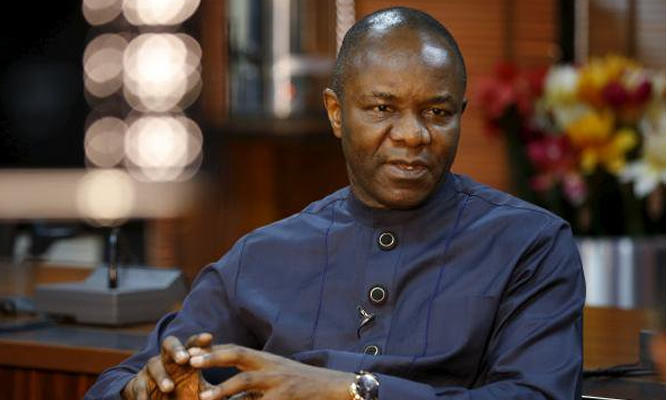Dr. Ibe Kachikwu’s tenure as Minister of State for Petroleum Resources from 2016 to 2019, under the administration of the late President Muhammadu Buhari, was marked by a significant challenge: the persistent fuel queues that crippled economic activities across Nigeria. Kachikwu, who previously served as the Group Managing Director of the Nigerian National Petroleum Company (NNPC) in 2015, recounted the immense pressure he faced in tackling this crisis. He described sleepless nights spent visiting fuel stations, attempting to alleviate the situation and ensure smooth traffic flow. Despite these efforts, the subsidised petrol imported into the country was continually smuggled across borders, perpetuating the scarcity. Kachikwu’s investigations revealed the extent of the smuggling operations, highlighting the inadequacy of political and security resources to effectively police Nigeria’s porous borders. This fueled his conviction that the existing subsidy regime was unsustainable.
Recognizing the root of the problem, Kachikwu repeatedly approached President Buhari, advocating for a review of pump prices to mitigate the financial losses incurred through smuggling and subsidy payments. However, Buhari, known for his populist stance, resisted any price adjustments, fearing the potential backlash from the public. Caught between a rock and a hard place, Kachikwu was tasked with finding a solution without altering the subsidized price. Finally, Buhari relented, giving Kachikwu the green light to implement his proposed solution, but with a caveat: if the plan backfired, Kachikwu would bear the consequences, including potential dismissal. This high-stakes scenario underscored the political sensitivity of the fuel subsidy issue and the immense pressure placed on Kachikwu to find a workable solution.
Emboldened by the President’s conditional approval, albeit with the threat of dismissal looming, Kachikwu introduced a policy he termed “price modulation.” This innovative approach linked petrol prices to international market realities, effectively allowing for subtle adjustments that reflected global fluctuations. The implementation of price modulation proved remarkably successful. Not only did it effectively eliminate the subsidy, but it also miraculously eradicated the persistent fuel queues that had plagued the nation within a mere 48 hours. This rapid and dramatic turnaround highlighted the efficacy of Kachikwu’s strategy and provided much-needed respite for the Nigerian economy. It also allowed Kachikwu, as he humorously noted, to finally get some much-needed sleep.
Kachikwu further solidified his commitment to fiscal responsibility by refusing to pay billions of naira in outstanding subsidy arrears he inherited upon assuming office. He argued that the majority of these claims lacked verifiable documentation and transparency, raising concerns about potential fraud and mismanagement. This decisive action demonstrated his resolve to prioritize accountability and ensure that public funds were utilized judiciously. By challenging the established practice of unquestioningly settling subsidy claims, Kachikwu set a precedent for greater scrutiny and transparency in the management of Nigeria’s oil resources.
The removal of fuel subsidies by President Bola Tinubu’s administration, years later, served as a vindication of Kachikwu’s earlier efforts. Kachikwu maintained that this move, though inevitable, should have been accompanied by a comprehensive plan addressing key sectors impacted by the change. This plan, he argued, should encompass strategies for revitalizing refineries, upgrading infrastructure, supporting transporters, and ensuring the well-being of oil-producing communities. These considerations reflect Kachikwu’s holistic approach to policy-making, emphasizing the importance of mitigating the potential negative consequences of major economic reforms on vulnerable sectors.
In reflecting on his time as Minister of State for Petroleum Resources, Kachikwu’s narrative underscores the complex interplay of political pressures, economic realities, and the need for innovative solutions in addressing Nigeria’s energy challenges. His experience with the fuel subsidy conundrum highlights the inherent difficulties in balancing populist policies with the need for fiscal responsibility and sustainable economic practices. Kachikwu’s bold decision to implement price modulation, despite the risk to his own position, ultimately proved to be a game-changer, providing a temporary reprieve from the crippling fuel scarcity and laying the groundwork for future reforms. His emphasis on transparency and accountability in subsidy management, coupled with his advocacy for a comprehensive approach to subsidy removal, offers valuable lessons for policymakers grappling with similar challenges in Nigeria and beyond.














